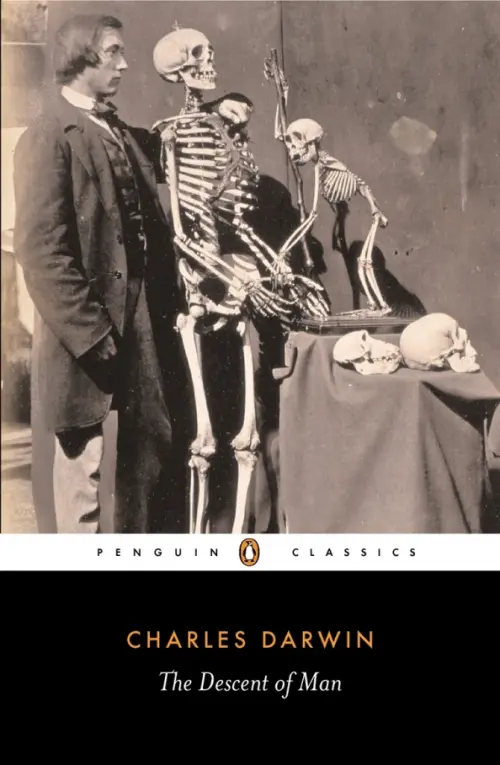
The Descent of Man
Applying his controversial theory of evolution to the origins of the human species, Charles Darwin's The Descent of Man was the culmination of his life's work. This Penguin Classics edition is edited with an introduction by James Moore and Adrian Desmond.
In The Origin of Species, Charles Darwin refused to discuss human evolution, believing the subject too 'surrounded with prejudices'. He had been reworking his notes since the 1830s, but only with trepidation did he finally publish The Descent of Man in 1871. The book notoriously put apes in our family tree and made the races one family, diversified by 'sexual selection' - Darwin's provocative theory that female choice among competing males leads to diverging racial characteristics. Named by Sigmund Freud as 'one of the ten most significant books' ever written, Darwin's Descent of Man continues to shape the way we think about what it is that makes us uniquely human.
In their introduction, James Moore and Adrian Desmond, acclaimed biographers of Charles Darwin, call for a radical re-assessment of the book, arguing that its core ideas on race were fired by Darwin's hatred of slavery. The text is the second and definitive edition and this volume also contains suggestions for further reading, a chronology and biographical sketches of prominent individuals mentioned.
Charles Darwin (1809-82), a Victorian scientist and naturalist, has become one of the most famous figures of science to date. The advent of On the Origin of Species by Means of Natural Selection in 1859 challenged and contradicted all contemporary biological and religious beliefs.



 Каталог товаров broE.ru
Каталог товаров broE.ru